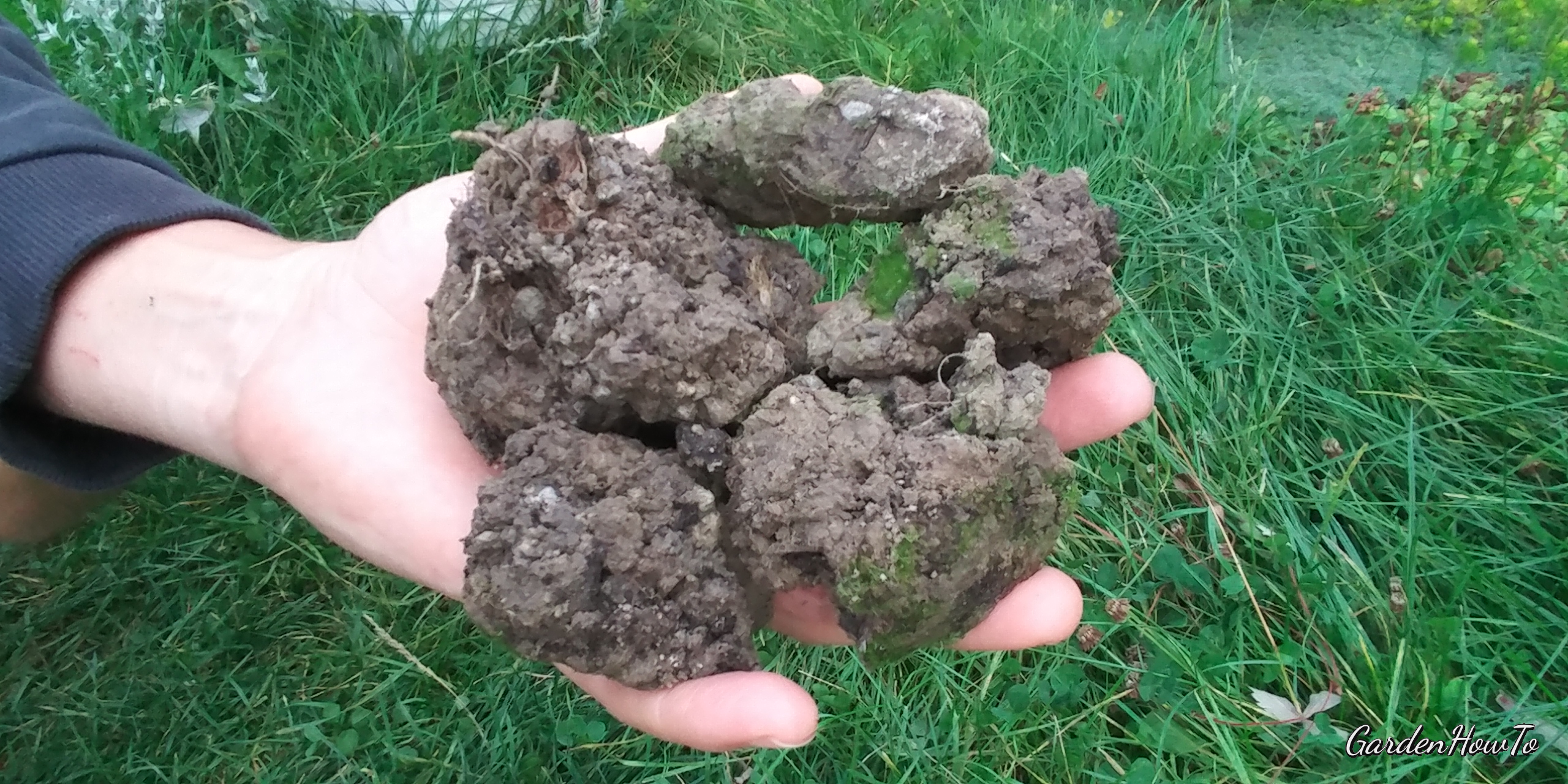I’m all about growing my own food with as little maintenance as possible. Meaning that I tend to my garden with minimum tilling and have the most pleasure digging in the dirt when it is soft and a bit moist.
However, this summer I’ve noticed that my veggies grow so slow in the ground… I thought I had done a good job of improving the soil over the course of the last year but for some reason, my beans do not curl high, tomatoes stay still in their progress, cucumbers are late in producing their fruits. Last year I had great success with my crops.
So I started asking myself what’s gRowing on with my soil??? 😆
The soil in my garden is a mix of clay and nutritious organic elements. I’ve been improving the content of loam over the past 5 years. When I started my garden in 2013 or so, the clay was so close to the surface that I had to refill holes with black topsoil from the store every time I planted a new crop. Fast-forward to today, the clay stays in the content but there are definitely more organic materials presented.
I thought maybe the soil has got exhausted over the last season because I planted veggies at the same place and I have to do the crop rotation? As I found in this article, crop rotation improves soil structure by helping with water infiltration and aeration. However, crop rotation in general, is applicable to the edible gardening on a farming scale, while my garden is of a small backyard size. So I had to dig deeper.
In the middle of the summer, I purchased lettuce seedlings. Being quite small they did not require deep holes. I thought the trowel would do the job quite easily. How surprised I was when the trowel did not slide into the soil and I had to use a shovel instead, requiring much more muscle power 😉.
Dense soil restricts drainage and aeration. Both of these elements are necessary for healthy root growth. When dense soil dries out in summer you can feel how hard it becomes – much like concrete and impervious to water.
Have you ever dealt with pressed down or compacted soil? Don’t despair – there is a solution to these problems.
In today’s video, I will tell you why soil might be turned into the hard-pressed substance and how you can help to soften the grounds down.
For more ideas, click here and join my early waiting list to the GardenHowTo Club.
Tips and Techniques
Soil is composed of:
– air
– water
– solid materials that consist of mineral components such as rock, sand and organic elements. These are the living things that make the whole ecosystem in your garden work.
If you wonder how your soil might get compacted it is quite possible that:
– the top layers were removed during construction and no work has been done to improve the soil
– the soil was left bare open over the long-time including winter and erosion has occurred
– or maybe you walked between the plants as often as I did? 🙂
Here is how to loosen soil in your edible garden:
Minimize activities that put pressure on the soil surface
- While operating on the compacted surface use a spading fork rather than a shovel. Only work on heavy soil when it’s moist – as opposed to wet or dry – to avoid compacting it or damaging its structure. If you turn over large clods, let them air-dry before crumbling them with a rake. Irrigate hard soils slowly (to make sure the water penetrates the soil) and sporadically to avoid dampening.
- Install pathways in your garden to minimize compaction from foot traffic.*
Add Compost and Mulch
- Apply compost to the top 4 inches of the soil as much and as often as possible. You will improve soil aeration, drainage and workability by using conditioners such as finished compost, aged manure and leaf mold. They gradually lighten compacted soils by modifying their structure. Don’t hesitate to apply organic mulches. You will not see it with your eyes but over time when they break down and make the hard surfaces more resistant to crusting and compaction. Mulches also shield heavy soils from the baking effects of the sun.**
Plant Cover Crops
- as per Fine Gardening magazine planting cover crops on the land patches when they supposed to stay dormant helps to smother weeds and even suppress weed seed germination.
If you are ready to finally take the step up and loosen soil in your garden make sure to check this article from Michigan State University which also advises limiting over-tilling.
Credits:
* “The Ultimate Guide to Soil” by Anna Hess
** “Healthy Soils for Sustainable Gardens” (Brooklyn Botanic Garden All-Region Guide)
P.S. It’s okay to admit you don’t know everything about edible gardening. After all, you can always learn new tricks. Even if your soil is not perfect you can start growing your own food from planting these 5 simple vegetables right now:
Check your email with the link to download …
If this post has helped you in some way or if you have any further questions I’d love to hear from you. Feel free to reply with your comment below.

